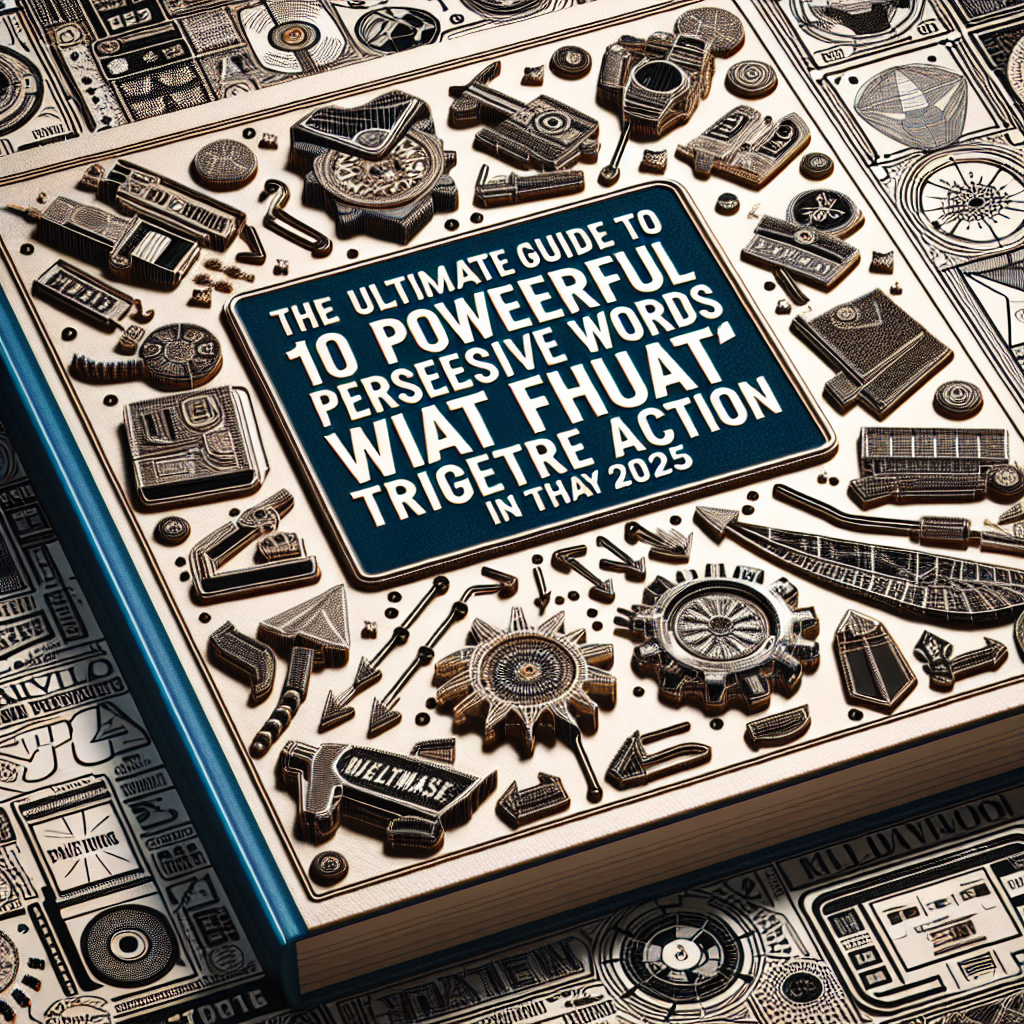
1. Urgent
Creating a Sense of Urgency for Immediate Action
One of the most effective persuasive words that trigger action is "urgent". When you communicate urgency, you tap into the human tendency to prioritize immediate needs over long-term plans. In 2025, consumers are bombarded with countless messages daily, so emphasizing urgency cuts through the noise and motivates quick decisions.
For example, marketing campaigns that include phrases like "Limited Time Offer" or "Act Now — Only a Few Spots Left" capitalize on this word’s power. It motivates potential customers to avoid missing out, driving faster conversions. Studies show that declining to act impulsively is less likely when urgency is clearly communicated, leading to higher engagement rates.
Actionable tip: Use "urgent" sparingly and genuinely. Overusing it can cause skepticism or mistrust. Make sure your offer or message truly warrants a quick response, or else the word will lose its impact and credibility. Consider pairing it with deadlines or limited availability to maximize effect.
2. Exclusive
Creating Perceived Value and Scarcity
The word "exclusive" appeals to the human desire for special treatment and uniqueness. In 2025, brands leverage exclusivity to build a sense of elite membership around their products or services. When you tell your audience they are part of a select group, it enhances perceived value and encourages action.
For instance, "Join our exclusive VIP club" or "Get access to exclusive content" make people feel privileged. This psychological trigger encourages users to act swiftly to avoid missing out on special benefits that only a limited few can enjoy. Combining exclusivity with social proof increases its effect even further.
Tip: Craft your messaging so that the exclusivity feels authentic. Genuine VIP offers or early access options work better than superficial claims. Consumers in 2025 are increasingly savvy and can detect disingenuous tactics.
3. Proven
Building Trust With Evidence and Credibility
The persuasive word "proven" helps establish credibility and trust. When you assert that your product or method is "proven to work," you're providing social proof backed by results, statistics, or testimonials. In 2025, consumers demand transparency and want to minimize risk before investing their time or money.
Using "proven" in your messaging can make your claims more convincing. For example, "Proven strategies to boost your productivity" implies that your solution is validated by data or case studies. This word reduces hesitation and accelerates decision-making.
Action tip: Always support your "proven" claims with concrete evidence, such as customer testimonials, certifications, or scientific studies. As consumers become more data-driven, transparency adds an extra layer of persuasion.
4. New
Highlighting Innovation and Freshness
The word "new" resonates strongly with audiences in 2025 who crave innovative solutions and products. People are eager to discover the latest trends and improvements, and branding your offering as "new" taps into that excitement.
For example, "Discover the new way to optimize your workflow" suggests that your product or service is on the cutting edge. It sparks curiosity and encourages users to explore what’s fresh and different, often translating into higher engagement.
Tip: When using "new," ensure that your offering genuinely reflects innovation. Overpromising can undermine trust, so always deliver on the freshness and novelty you promote.
5. Free
Offering Value Without Cost
The persuasive word "free" continues to be highly effective in 2025. People love getting something for nothing, which lowers barriers to engagement. Whether it's free trials, samples, or consultations, this word can significantly increase conversions.
For instance, "Get your free eBook" or "Free consultation for new clients" appeals to people's desire for risk-free exploration. Once they experience your offering at no charge, the likelihood of converting into a paying customer increases.
Practical tip: Ensure that your free offers are valuable and relevant. Excessive free giveaways without strategic purpose can devalue the perceived worth of your brand.
6. Exclusive Offer
Combining Power Words for Maximum Impact
The phrase "exclusive offer" merges two potent persuasive words, creating a compelling invitation. It conveys both uniqueness and value, motivating recipients to act quickly to secure the deal.
In 2025, leveraging limited-time exclusive offers in email campaigns or social media can generate spikes in engagement. This approach harnesses the fear of missing out (FOMO) and the desire for special treatment, driving immediate action.
Advice: Always communicate the scarcity or limited nature of your exclusive offer to maximize urgency and the perception of added value.
7. You
Personalization and Direct Address
Using "you" in your messaging personalizes your message, making it feel directly relevant to the reader. This simple word is one of the most persuasive because it appeals to the individual's desires and needs.

For example, "You can achieve more with our platform" makes the reader feel seen and understood. Personal language fosters connection and increases the likelihood of action.
Tips: Incorporate "you" naturally in your content and calls to action. Personalization improves engagement and boosts conversions, especially in 2025's customer-centric marketing landscape.
8. Because
Providing Reasoning to Justify Actions
The word "because" adds justification to your requests, making them more persuasive. When you tell someone "Do it because..." you appeal to their need for logical reasons, reducing resistance.
Research shows that using "because" can significantly improve compliance—up to 93% in some studies. In 2025, smart marketers apply this by explaining benefits or adding social proof, making actions seem more reasonable.
Example: "Sign up today because spots are filling fast" combines urgency with justification, increasing likelihood of immediate action.
9. Join
Encouraging Participation and Community Building
"Join" is a persuasive words that triggers the human instinct to belong. Whether they’re joining a newsletter, a webinar, or a community, the word fosters inclusion and collective identity.
In 2025, brands leverage social proof by showing how many others have joined or emphasizing community benefits. This word helps to break down barriers and invites users to become part of something bigger.
Actionable tip: Use "Join" clearly in your calls to action and highlight the advantages of being part of your group or program.
10. Ultimate
Positioning as the Best or Most Complete Solution
The word "ultimate" elevates the perceived value of your offering, suggesting it’s the best or most comprehensive option available. In 2025, positioning your product as the "ultimate" solution appeals to consumers seeking to maximize results.
Marketing phrases like "The ultimate guide" or "Your ultimate resource" position your content as a must-have. It appeals to those striving for excellence and continuous improvement.
Tip: Combine "ultimate" with specific benefits to emphasize how your offering is unrivaled in reaching their goals.
Conclusion
Understanding and utilizing the right persuasive words that trigger action is crucial for success in 2025. Words like "urgent," "exclusive," "proven," and others discussed in this guide can transform your marketing, sales, and communication strategies. Incorporating these powerful words thoughtfully helps you connect with your audience more effectively, fostering trust and prompting decisive action.
Remember, the key to maximizing their impact lies in authenticity, timing, and relevance. As we move further into 2025, mastering the art of persuasive language will remain a cornerstone of successful engagement. By leveraging these top 10 persuasive words, you can significantly increase your influence and achieve your goals more efficiently.
Always keep in mind that the power of persuasive words that trigger action can make the difference between a missed opportunity and a conversion. Use them wisely, and watch your results soar in 2025!
FAQ
Q1: How do persuasive words that trigger action improve marketing campaigns?
They capture attention, create urgency or desire, and motivate quick decisions, leading to higher engagement and conversion rates.
Q2: What is an example of using "urgent" effectively?
Using phrases like "Limited seats available — act now!" motivates immediate response by emphasizing scarcity and urgency.
Q3: Why is "because" considered a powerful persuasive word?
Because it provides logical justification, making requests or calls to action seem more reasonable and convincing.
Q4: How can I incorporate "you" in my messaging?
Use it to personalize and address your audience directly, increasing relevance and fostering a connection that encourages action.
Q5: What are some common mistakes when using persuasive words that trigger action?
Overusing or misusing them can lead to skepticism. Always ensure your claims are authentic and backed by evidence to maintain credibility.

https://linkupsocialmedia.com/persuasive-words-that-trigger-action/?fsp_sid=4257


No comments:
Post a Comment